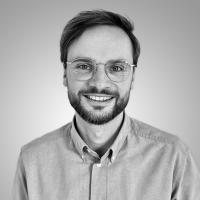© Therese Fosholt Moe, 2025
Nature-Based Solutions as Enablers of a Nature-Positive Future
Holistic Framework for Successful Development of NbS
- Event
- Date
-
-
- Location
- Aarhus, Denmark
- Speaker
Our Biodiversity Coordinator, Dr. Benjamin Kupilas, presented how Nature-based Solutions (NbS) can drive the systemic shift toward a Nature-Positive Economy. The conference gathered policymakers, researchers, and practitioners across the Nordic region.
Why Go Nature Positive?
Our global goal is ambitious: halt and reverse biodiversity loss by 2030 and reach full recovery by 2050. A nature-positive future means not only reducing harm but actively restoring ecosystems – turning sustainability from a defensive measure into a proactive force for resilience and prosperity. This transition requires systemic change across all sectors, from agriculture to urban planning, backed by strong policies, financing, and behavioral shifts.
NbS: A Transformative Entry Point
Dr. Kupilas highlighted NbS as a transformative entry point for this transition. They require integrated action across sectors, governance levels, and social groups and NbS help bridge the gap between environmental ambition and social engagement. They are also powerful communication tools: making biodiversity tangible through benefits people can feel – cooler cities, cleaner air, healthier communities, and climate resilience.
The Economic Case for Nature
Two-thirds of Europe's economy depends on nature, yet we are still degrading the ecosystems we rely on. Businesses that integrate nature into their decisions can strengthen long-term resilience, reduce risk, and unlock new markets. Through the Go Nature Positive (GoNP!) initiative, Ecologic Institute and partners are helping define what a nature-positive economy looks like, from conceptual frameworks to local pilots.
What is a Nature-Positive Economy?
NPE means that the net result of all economic activities combined lead to an absolute increase in nature, to the point of full recovery. Transition to a Nature-Positive Economy is aligned with national and EU commitments to the Global Biodiversity Framework and the implementation of the Nature Restoration Regulation (NRR).
Focus: The Built Environment
In Aarhus, Dr. Kupilas zoomed in on the built environment, one of Europe’s most impactful and promising sectors. Cities consume vast amounts of land and resources, but they can also lead the way toward regeneration and nature-positive. By embedding NbS, like green roofs, urban forests, and permeable pavements, cities can reduce heat, prevent flooding, store carbon, and restore biodiversity. Policies play an important role in enabling this shift.
From Policy to Practice
At an overarching level, many policies are saying the right thing. There are strong nature-positive elements across the Nature Restoration Regulation, the Energy Efficiency Directive, and the Urban Wastewater Treatment Directive – all of which increasingly recognise the role of Nature-based Solutions (NbS) in achieving environmental and climate goals. Yet, current frameworks often relying too heavily on voluntary action and non-binding targets, remain fragmented, and many subsidies still support nature-harmful activities. Through GoNP!, we are working with partners such as the European Federation of Green Roofs and Walls (EFB) to develop roadmaps that connect EU-level ambition with on-the-ground implementation. Through Go Nature Positive!, we are working with partners such as the European Federation of Green Roofs and Walls (EFB) to develop roadmaps that connect this high-level EU ambition with concrete, on-the-ground implementation, ensuring policies translate into measurable, lasting impact.
Key Takeaways
- NbS must become standard practice, not optional extras.
- We need to enforce existing mandates and mobilize funding to deliver.
- Monitoring and integrated governance are critical for long-term success.
- Above all: nature is not a cost, it’s an asset for resilience, innovation, and competitiveness.



